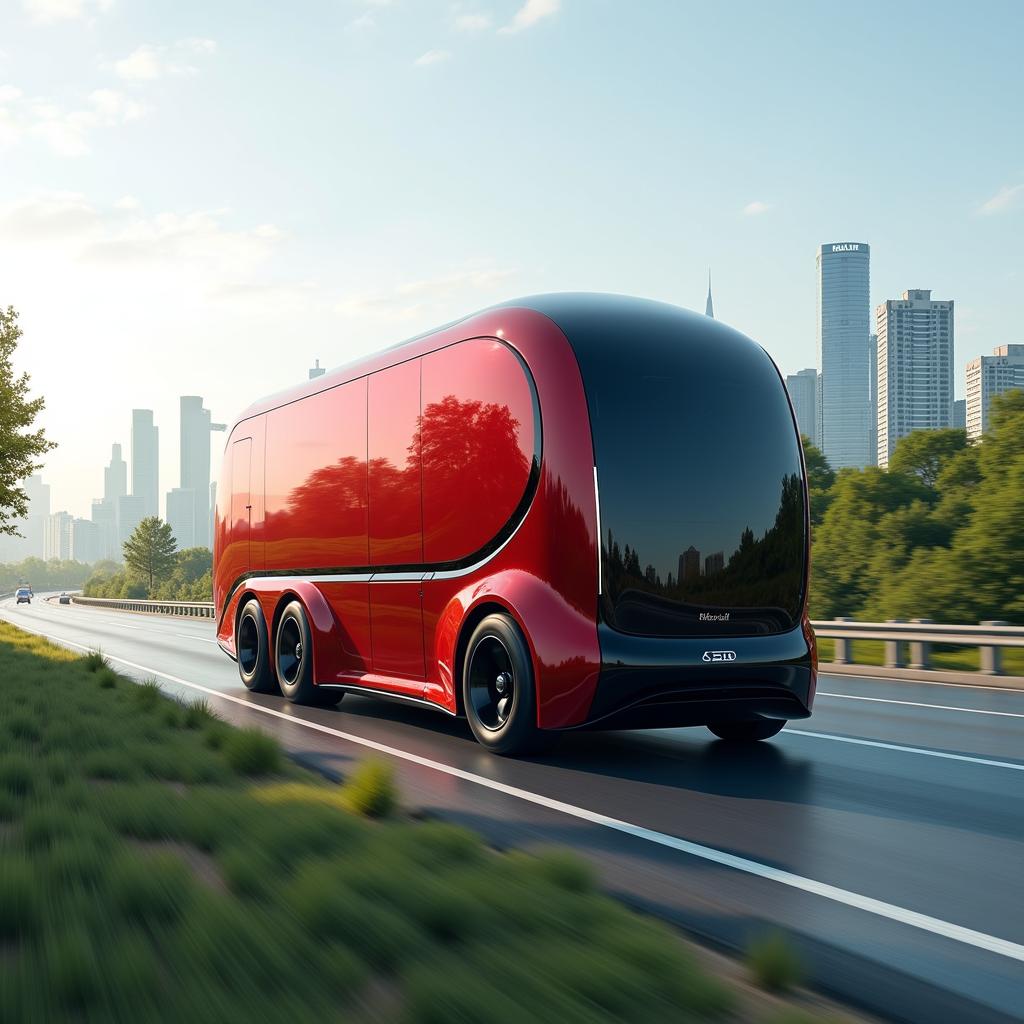The Future of Hydrogen-Powered Trucks in America
As the transportation industry undergoes a dramatic transformation towards sustainable solutions, hydrogen-powered trucks in the USA are emerging as a promising alternative to traditional diesel vehicles. With major manufacturers and fleet operators investing heavily in this technology, we’re witnessing the dawn of a new era in commercial transportation. Let’s explore how these revolutionary vehicles are reshaping America’s trucking landscape and what this means for the future of freight transport.
Understanding Hydrogen Fuel Cell Technology in Trucking
At its core, hydrogen fuel cell technology represents a remarkable leap forward in how we power commercial vehicles. Unlike traditional combustion engines, fuel cells generate electricity through a chemical reaction between hydrogen and oxygen, producing only water vapor as a byproduct. This clean energy conversion process makes hydrogen-powered trucks particularly attractive for companies looking to reduce their carbon footprint.
The system works by storing compressed hydrogen in specially designed tanks, which then feeds into the fuel cell stack. Here, the hydrogen combines with oxygen from the air, generating electricity to power the truck’s electric motors. This process provides several advantages over both diesel engines and battery-electric vehicles:
• Faster refueling times (typically 15-20 minutes)
• Longer range capabilities (up to 600-800 miles)
• Consistent performance in various weather conditions
• Higher payload capacity compared to battery-electric trucks
Current State of Hydrogen Trucking Infrastructure
One of the biggest challenges facing the adoption of hydrogen-powered trucks in the USA is infrastructure development. According to the U.S. Department of Energy, there are currently limited hydrogen fueling stations nationwide, with most concentrated in California.
However, significant investments are being made to expand this network:
• Major fuel providers are building strategic hydrogen corridors
• Public-private partnerships are funding new fueling stations
• Regional hydrogen hubs are being developed across the country
The infrastructure challenge is gradually being addressed through collaborative efforts between government agencies, energy companies, and truck manufacturers. These partnerships are crucial for creating the necessary foundation for widespread adoption of hydrogen trucking technology.
Economic Viability and Cost Considerations
The economics of hydrogen-powered trucks are becoming increasingly favorable as technology advances and production scales up. While the initial purchase price of these vehicles remains higher than conventional diesel trucks, the total cost of ownership (TCO) is becoming more competitive due to:
Operating Costs
• Lower maintenance requirements
• Reduced fuel costs as hydrogen production efficiency improves
• Potential tax incentives and government subsidies
• Longer vehicle lifespan due to fewer moving parts
Financial Incentives
• Federal tax credits for clean vehicle purchases
• State-level grants and incentives
• Carbon credit trading opportunities
• Fleet modernization programs
As production volumes increase and technology matures, the purchase price of hydrogen trucks is expected to decrease significantly over the next decade, making them an increasingly attractive option for fleet operators.
Environmental Impact and Sustainability
The environmental benefits of hydrogen-powered trucks cannot be overstated. When powered by green hydrogen (produced using renewable energy), these vehicles offer a truly zero-emission solution for heavy-duty transportation. According to the Environmental Protection Agency, the transportation sector is one of the largest contributors to greenhouse gas emissions in the United States.
Key environmental advantages include:
• Zero tailpipe emissions
• Reduced noise pollution
• Minimal impact on air quality in urban areas
• Lower overall carbon footprint when using green hydrogen
Future Outlook and Industry Adoption
The future of hydrogen-powered trucks in America looks increasingly promising. Major manufacturers are committing to hydrogen technology, with several models already in testing or early deployment phases. Industry experts predict that by 2030, hydrogen fuel cell trucks could represent a significant portion of new heavy-duty vehicle sales.
Factors driving adoption include:
Technological Advancements
• Improved fuel cell efficiency
• Enhanced hydrogen storage solutions
• Better overall vehicle performance
• Advanced safety systems
Market Developments
• Increasing manufacturer competition
• Growing fleet operator interest
• Expanding infrastructure network
• Strengthening government support
Challenges and Solutions
While the potential of hydrogen-powered trucks is significant, several challenges need to be addressed:
Infrastructure Development
• Continued expansion of fueling stations
• Standardization of fueling protocols
• Integration with existing freight networks
Cost Reduction
• Scaling up hydrogen production
• Improving fuel cell manufacturing efficiency
• Reducing maintenance and operating costs
Technical Considerations
• Optimizing fuel cell durability
• Enhancing cold weather performance
• Improving overall system efficiency
Industry stakeholders are actively working on solutions to these challenges through collaborative research, development, and implementation efforts.
Conclusion
The future of hydrogen-powered trucks in America represents a pivotal shift in commercial transportation. As infrastructure expands, costs decrease, and technology improves, these vehicles are positioned to play a crucial role in achieving a sustainable transportation future. The combination of environmental benefits, operational advantages, and improving economics makes hydrogen trucks an increasingly attractive option for fleet operators looking to modernize their operations.
Are you interested in learning more about how hydrogen-powered trucks could benefit your fleet operations? Our team of experts is ready to help you understand the opportunities and challenges of transitioning to hydrogen technology. Contact us today at +1 206-337-4787 to discuss how we can help you prepare for the future of commercial transportation.
Take the first step toward a cleaner, more efficient future for your fleet. Let’s work together to explore how hydrogen technology can transform your transportation operations and position your business for success in the evolving logistics landscape.







